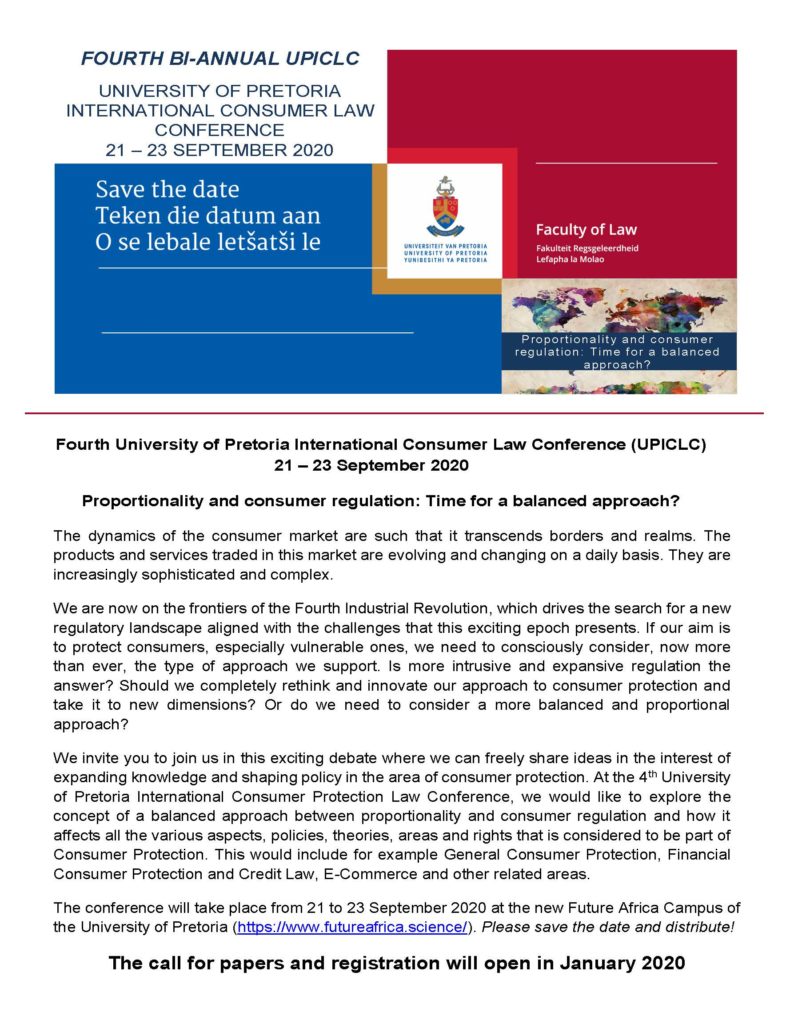
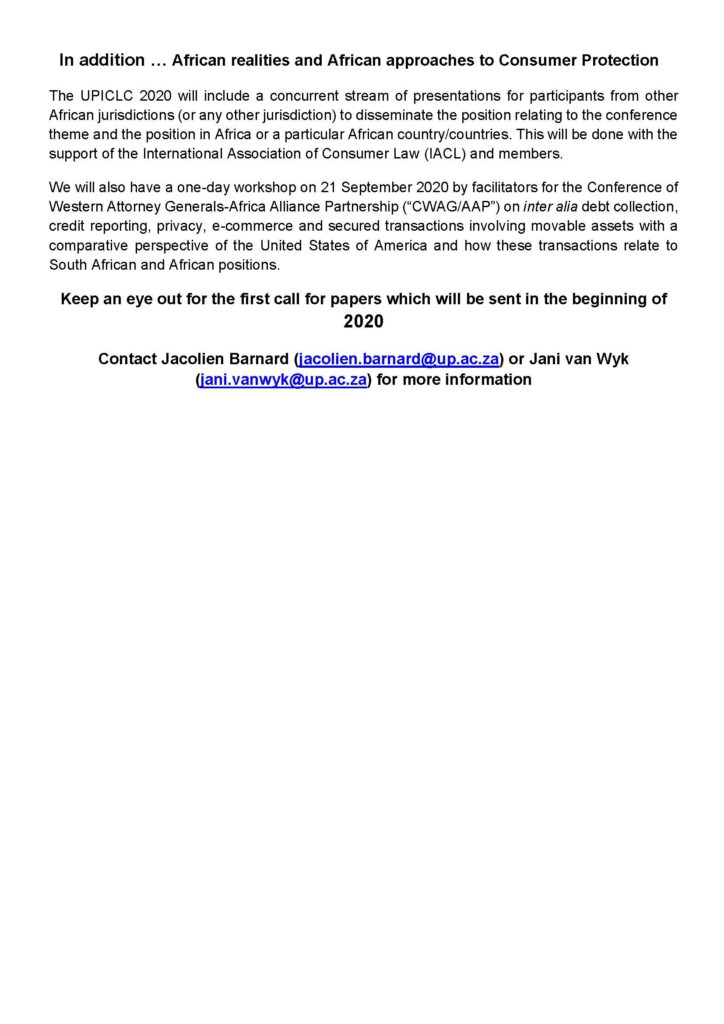
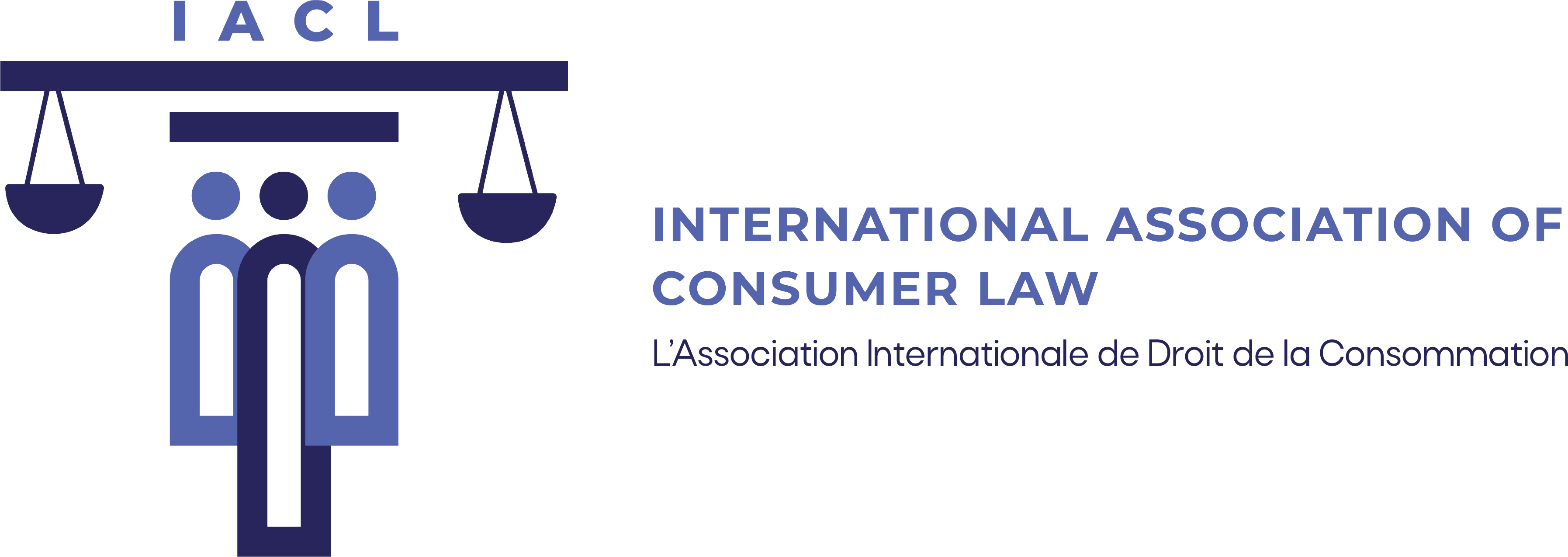


The IACL received two excellent bids to host the 2021 conference. The one bid was prepared by Santa Fe city, province of Santa Fe, Argentina, Faculty of Legal and Social Sciences, Litoral National University (prepared under the leadership of Prof Sebastián Barocelli from the University of Buenos Aires) to host the conference in Santa Fe in Argentina. The other bid was to host the conference in Hamburg, Germany and it was prepared by the Institute for Financial Services (IFF) (under the leadership of Dr Sally Peters and Prof. Dr Udo Reifner), an independent non-profit organization which was founded in 1987. After a rigorous voting process by the board of the IACL the bid was awarded to Hamburg. We congratulate the IFF for winning the bid to host the next IACL conference! The call for conference papers and more details regarding the 2021 conference in Hamburg (provisionally scheduled for July 2021) will follow in due course.
In 2013, IACL began giving an unnamed award to the best paper abstract submitted by a young/doctoral students at each biannual IACL conference.
At the 2017 Conference in Porto Alegre, Brazil, the IACL Board decided to name the award the Norbert Reich Prize in honor of the late Professor Norbert Reich for his contributions to consumer protection and economic development.
Norbert Reich Award

Prof. Dr. Dr. h.c. Norbert Reich was Emeritus Professor of Private law and European Economic Law at the University of Bremen, Visiting Professor of Law and Governance at Groningen University, the Netherlands, and was a renowned expert on European private law. In 1973 Norbert Reich became a Professor at the Hamburg University for Economics and Politics (HWP). From 1982 he was a Professor at the University of Bremen and from 2005 an Emeritus Professor. He also served as the leading director of the ZERP, the Centre of European Law and Politics at the University of Bremen from 1982-1991. In 2000 he received an honorary doctorate from Helsinki University and from the University of Bucharest in 2014. From 2001-2004 Norbert Reich was the Rector at the Riga Graduate School of Law. Norbert Reich also held visiting professorships at the Universities of Montpellier, Fribourg, Keele, Luzern and Tartu. Prof Reich’s other activities included several advisory activities in European Economic and Consumer Law.
Udo Reifner Award

The Udo Reifner Prize was introduced for the first time at the previous IACL conference that took place in Porto Alegre, Brazil, in 2017. Prior to the introduction of this award, a general award was given to the best paper abstracts submitted by young/doctoral students for the IACL conference. Awards were given for the best abstracts at the IACL’s Sydney Conference (2013) and the Amsterdam Conference (2015) respectively. At the Porto Alegre Conference the board decided to name the award the Udo Reifner Prize in honour of Professor Udo Reifner’s loyal support of the IACL’s work and conferences over the years and his valuable international contributions in the area of consumer law, particularly consumer credit law.
Prof. Dr. Udo Reifner (born 1948) studied sociology and law in Berlin and Marburg. He is the founder and long-term Director of the independent institute for financial services (iff reg. ass.). His dissertation was on the law of consumer credit 1976. His first project with the EU was in 1983 on new forms of consumer legal advice. In 1981 he obtained the then only chair on consumer law in Germany to 2015 at the Hamburg University where he succeeded Professor Norbert Reich. After his retirement in Germany he was professor at Trento University for three years. He was a guest professor with a focus on financial consumer law at the McGill University, Montreal (1986), Université de Louvain-la-Neuve (1990), De Paul University, Chicago (1994), Birmingham University (1997), and the New York University (Spring 2000). He attended the EU-Consumer Law conferences in the 1980s, published an EU-Report together with Thierry Bourgoignie, Nick Huls, Thomas Wilhemsson, Norbert Reich, David Caplovitz. In 1989 he organised his first EU-conference on responsible financial services followed by conferences in Birmingham, Strasbourg, Bergamo and Gothenburg. From the very beginning of IACL he became an active member of it. His over 280 publications are focussed on financial services law and consumer debt, sociology of law and the history of German law under fascism. In 2017 he summarized his interdisciplinary research in three Volumes on the “economics, sociology and law of money” with a fourth volume on the 2008 financial crisis. Together with the US based NCRC he initiated the Coalition for Responsible Credit (www.responsible-credit.net), with the University of Trento the European Social Contract Group (www.eusoco.eu) and recently the Coalition against Usury in Germany (www.stopwucher.de). He is member of a number of consumer organisations, was president of the EU financial user committee and served five years as an expert in the advisory board of the German Financial Services Authorities (BAFIN).
The IACL awarded the Norbert Reich Prize in 2017 and the Udo Reifner Prize in 2019.
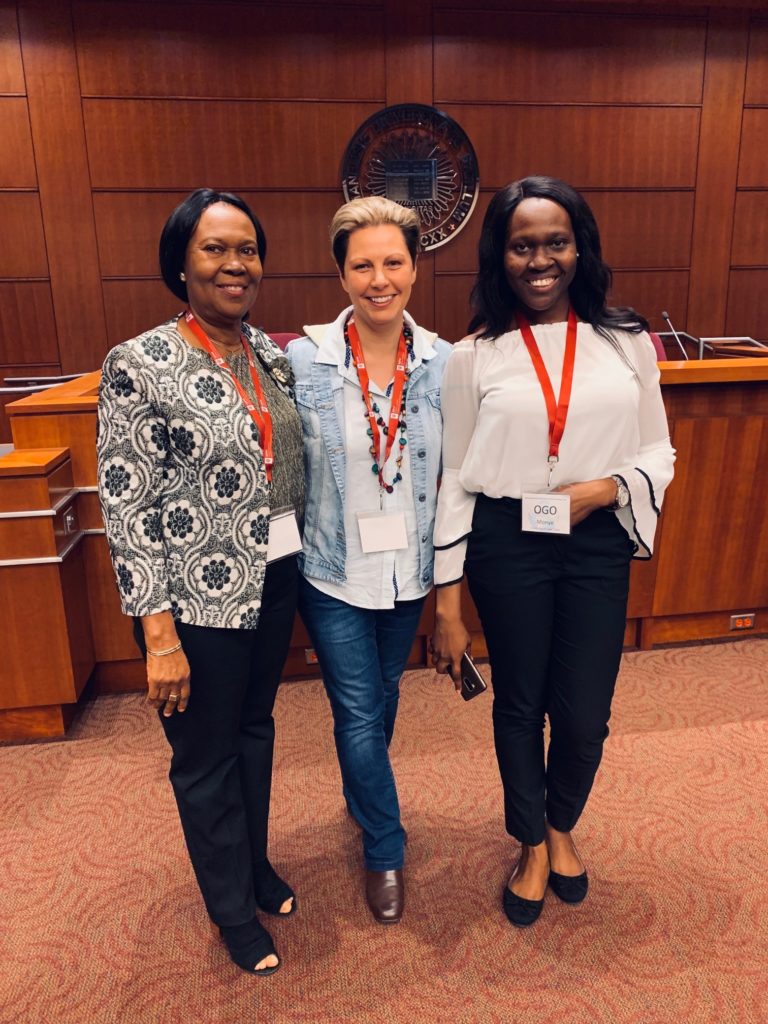
Identification Management in Nigeria: Innovations for Financial Inclusion
Ms Ogochukwu (Ogo) Monye, a law lecturer at the University of Benin, Nigeria and a doctoral candidate at the University of Cape Town, South Africa was awarded the 2019 Udo Reifner Prize for the best abstract by a young doctoral scholar for her paper titled “Identification Management in Nigeria: Innovations for Financial Inclusion,” which discussed the important issue of lack of documentation that impedes numerous Nigerians from accessing financial services. The abstract of her paper follows below:
In Nigeria, about 41.6 percent of the population of the country lacks access to formal financial services according to the Central Bank of Nigeria. Studies have shown that apart from factors such as distance to banks, financial illiteracy, irregular income, unemployment and complexity of account opening; lack of proof of identity documentation debars a significant number of persons from accessing finance. This paper seeks to address the last issue as a significant factor of financial exclusion in order to help citizens more easily fulfil mandatory Know-Your-Customer (KYC) checks as well as facilitate access to additional financial products including loans, pension and insurance. Significantly, this is in line with goal 16.9 of the United Nations Sustainable Development Goals (SDG) which envisions a legal identity for all by the year 2030. Notably, the National Identification Management Commission (NIMC) was established since 2007 to oversee all matters of citizens’ registration. So far, the commission has only succeeded in registering about 30 million Nigerians out of the total national population of approximately 198 million. The doctrinal method of research is employed as mostly legal literature and regulatory guidelines and policies are utilised. Furthermore, the author will draw examples from the regulatory landscape of other jurisdictions such as Pakistan, Peru and Uganda where positive strides have been achieved in the sphere of national registration. In Pakistan for instance, 98 per cent of the target population has been captured in the national identification programme including socially disadvantaged groups aided by a wide array of mobile registration agents comprising hikers, van drivers, mountaineers, bikers and skiers to locate citizens even in the most remote locations. Similarly, Uganda has attained 99 percent registration even though the programme was only commenced in the year 2014. The author proposes a self-sustaining universal national identification system that provides Nigerians with the needed foundational identity to access financial services with a view to achieving financial inclusion. The paper proposes an efficient national identification system that is cost-effective, inclusive and recognises the unique socio-cultural and demographic characteristics of Nigeria. The shortcomings of the existing identification system such as funding strategies, mode of registration and logistics management are highlighted. The paper proposes more effective means to reach excluded populations through an efficient national identification system founded on new and existing technology including biometrics, blockchain and the Internet of Things. The paper is expected to contribute to the growing body of literature on improving national identification and the global conversation on financial inclusion bolstered on an effective national identification system. Furthermore, the recommendations are intended to foster socially inclusive gains in several other sectors including agriculture, health and social security. Finally, even though this work is specifically focused on Nigeria, the findings offer veritable lessons for other nations grappling with financial exclusion by reason of inadequate or unsuitable identification systems.
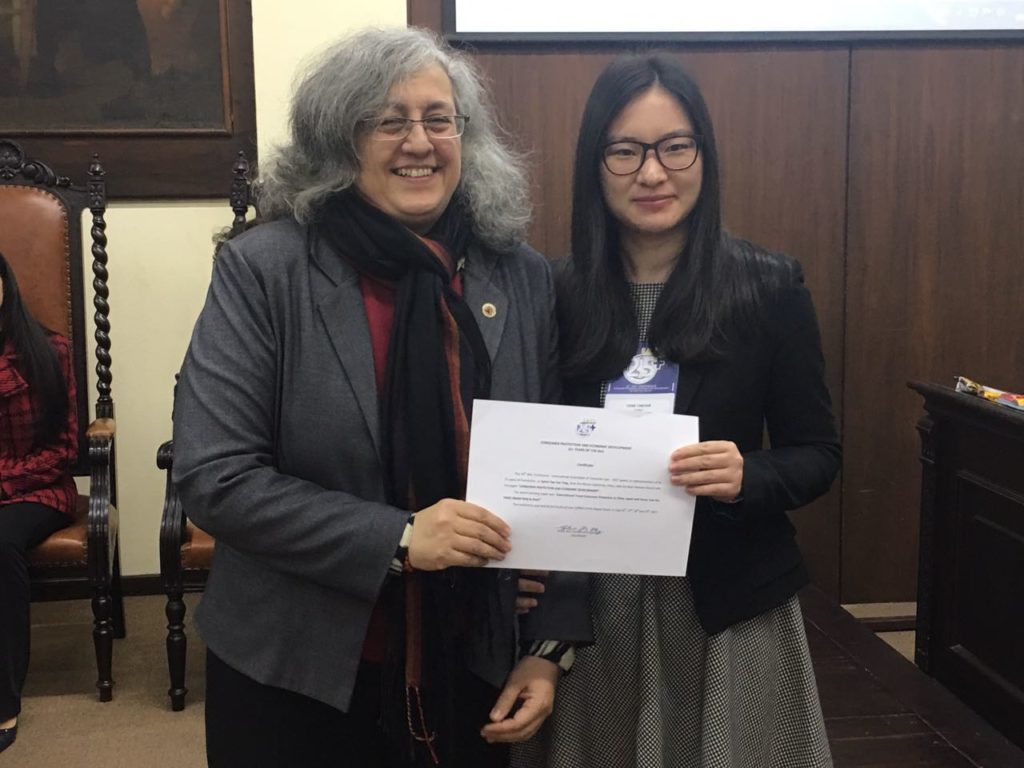
INTERNATIONAL TRAVEL CONSUMER PROTECTION IN CHINA, JAPAN AND KOREA: CAN THE FIAGC MODEL HELP IN ASIA?
China, Japan and South Korea are important forces to promote development in Asian tourism and are significant tourist regions with great potential all over the world. In light of the statistics, in 2014, the number of exchange visitors among those three states reached 20 million 470 thousand. The scale of inbound tourism of three states accounted for nearly 60% of the total inbound tourism in the Asia-Pacific region. Huge market scale for the tourism industry created brand-new opportunities, but also encountered a lot of problems. During May Day holiday 2016, several Chinese tourist groups were cheated by the Japanese guide for shopping in a “Duty Free” shop which is specific for Chinese tourists and buying the health care products with price 3 times higher than that on the normal shop, but they did not know how to complaint in a strange place. In Seventh October 2016, thousands of visitors from china to Jeju Island in Korea were excluded and detained due to Visa problem, even though Jeju Island is a Visa-free area for Chinese visitors. Under such circumstances, the governments of China, Japan and Korea need solve lots of problems under the condition of regional cooperation. For instance, how to create a securer tourism environment and provide better travel services for tourists, and how the tourists protect themselves When their rights have been infringed in other two states. Regarding the area of regional consumer protection, FIAGC Model, as the regional institutions established by Latin American governments, Portugal and Spain, devoting to analyzing and discussing on consumer protection and development including travel consumer, is the world’s most advanced regional cooperation platform for consumer protection. This paper seeks to show the Asia-Pacific region can take the FIAGC Model as reference to establish a dialogue platform between the governments and further to promote cooperation among the states for protecting the rights and interests of travel consumers.
Thanks to Jim Nehf and the McKinney School of Law at Indiana University- Indianapolis, the 2019 bi-annual IACL conference brought together presenters from around the world, who discussed papers that spanned diverse areas of consumer law. Abstracts of the papers are available through this link: https://www.iacl.net.au/wp-content/uploads/2019/07/Abstracts-of-Presenters-2.pdf
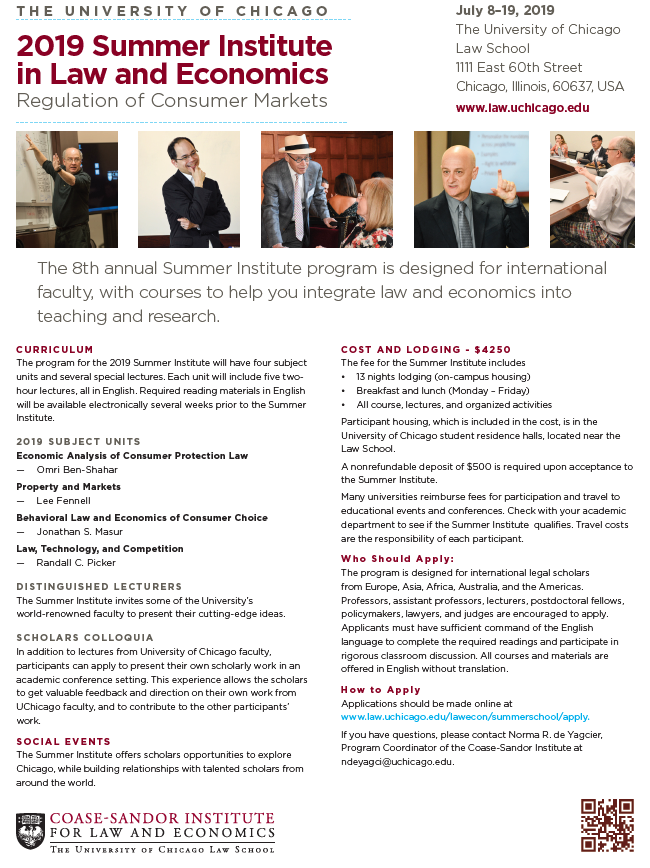
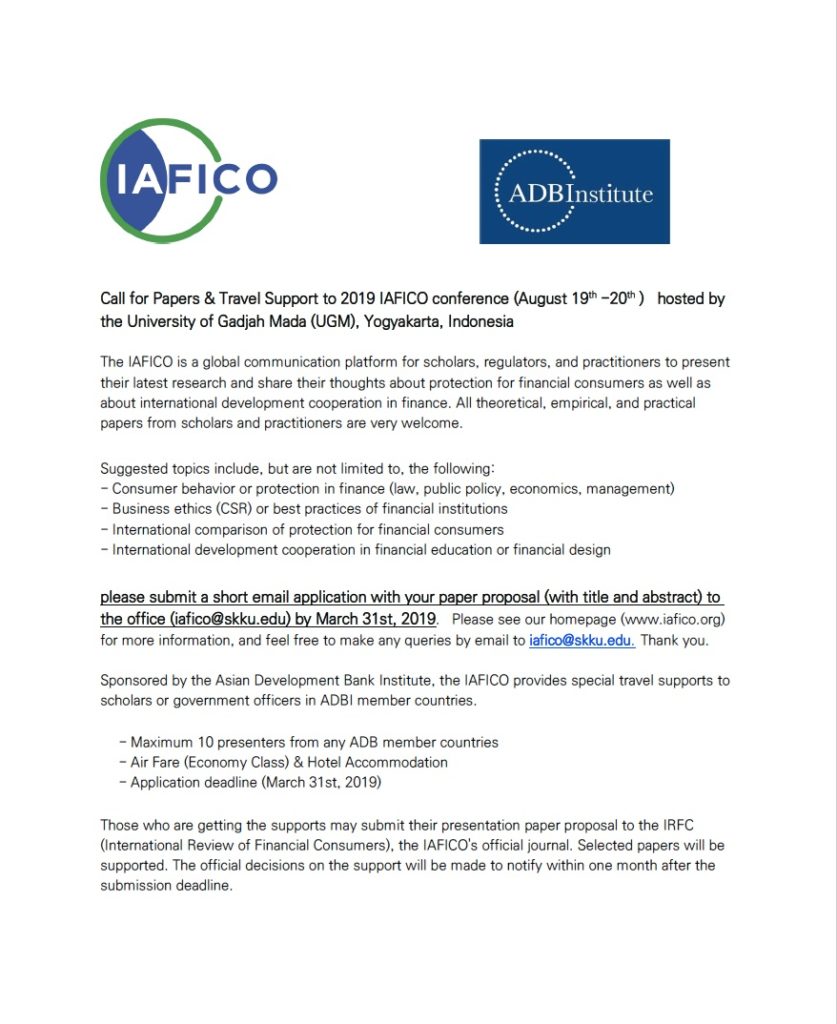
We have received several requests to extend the time for submitting abstracts for the June 2019 IACL conference. In response, the conference organizers will now be accepting abstracts through January 2019.
IACL Conference: “Innovation and the Transformation of Consumer Law”June 13-15, 2019, Indiana University Robert H. McKinney School of Law C
Dates: Thursday, 13 June 2019 – Saturday, 15 June 2019
Location: Indiana University Robert H. McKinney School of Law, 530 W. New York Street, Indianapolis, IN 46202, USAThe 17th conference of the International Association of Consumer law will be organized around the theme of “Innovation and the Transformation of Consumer Law.” We kindly invite participants from around the world to submit an abstract (max. 500 words) of a paper they would like to present during the conference.
Abstracts and inquiries should be sent to [email protected].
Please note that no interpreters will be available for language translation.The conference will run from approximately 9:00 AM on Thursday, June 13, 2019 to 3:00 PM on Saturday, June 15. It will be held at the Indiana University Robert H. McKinney School of Law in Indianapolis, Indiana. The goal of this conference is to provide a forum where leading international scholars, practitioners, representatives of consumer organizations, public authorities and business can gather together to present and discuss issues relevant to consumer protection in many sectors and from various perspectives. We welcome both theoretical and empirical submissions. Selected authors will be offered an opportunity to publish their papers in the Indiana International and Comparative Law Review.
TOPICS: We encourage presenters to focus on the overarching theme of the conference: “Innovation and the Transformation of Consumer Law.” Innovation in this sense could encompass technologies that create new challenges for consumer policy (e.g., the “internet of things,” “smart” contracts), creative developments that can assist consumers in protecting their economic interests (e.g., online consumer reviews), innovative approaches to solving traditional and continuing consumer concerns, and challenges presented by emerging ways of creating and delivering consumer products and services. Within the general theme, presenters might reflect on past successes (and failures) of consumer law and policy in a particular area of commerce, opportunities for moving consumer law in a different direction, or the potential threats to consumer welfare (particularly the impact of changes in the political landscape in some parts of the world). Papers focusing on consumer law in individual countries are welcome, as well as papers with an international focus.For more information about the conference, hotel accommodations, registration, and a conference schedule, please visit the conference website at: https://mckinneylaw.iu.edu/iacl-conference
CALL FOR PAPERS: A New Deal for Civil Justice? The New Deal for Consumers and the Justiciability of EU Consumer Rights
11-12 April 2019, Amsterdam
22 October 2018
The 2019 CSECL conference revolves around the New Deal for Consumers that was proposed by the European Commission on 11 April 2018. It focuses on issues of civil justice that the New Deal aims to address – as well as, crucially, the questions it appears to raise. The workshop will bring together researchers interested in (the future of) European private law, civil procedure, consumer law and, possibly, others with an interest in the enforcement of EU law and EU constitutional law.
Call for papers
We encourage younger and more established researchers interested in the theme to submit an abstract by 21st December 2018 by email to Rahila Haque, [email protected]. Draft papers will be due at the end of March 2019. CSECL endeavours to cover the accepted speakers’ (economy class) travel and accommodation costs.
The organisers and CSECL aim to publish some or all conference proceedings in a special issue of a reputable European law journal. More details will follow.
For further information
If you have any questions about the conference or require further information, please contact Anna van Duin and Candida Leone.